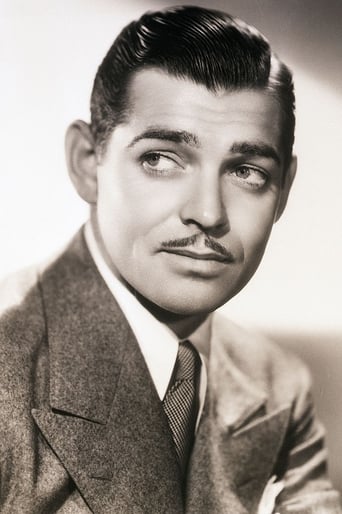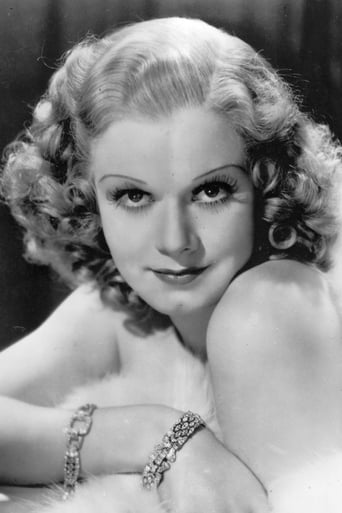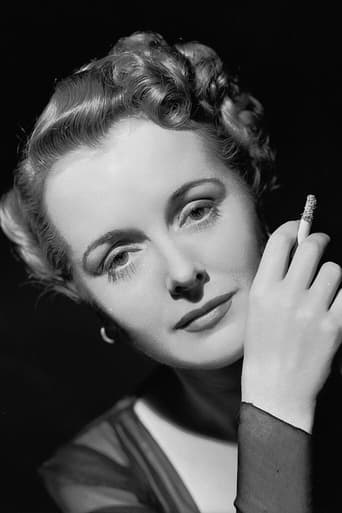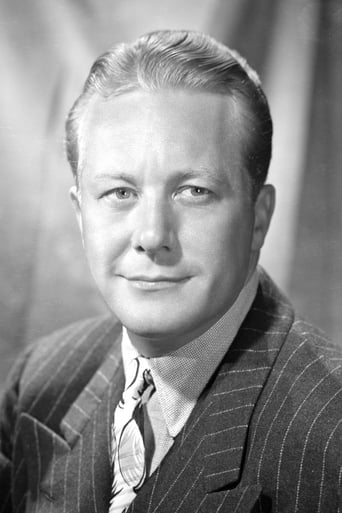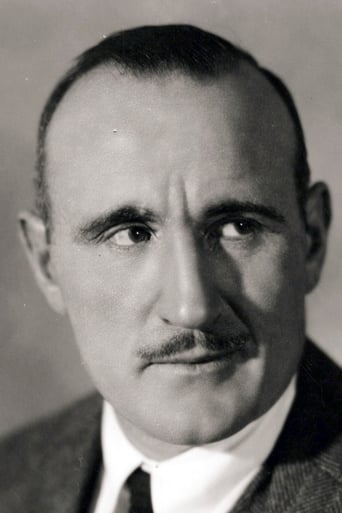LouHomey
From my favorite movies..
Kailansorac
Clever, believable, and super fun to watch. It totally has replay value.
Keeley Coleman
The thing I enjoyed most about the film is the fact that it doesn't shy away from being a super-sized-cliche;
Kien Navarro
Exactly the movie you think it is, but not the movie you want it to be.
Dunham16
Brilliant cinematography for this period, iconic pre code banter for this period and outstanding performances by Mary Astor and Jean Harlow, two of the period's leading ladies alone assure this famous film a Hollywood classic. Clark Gable, Gene Raymond and Donald Crisp are the three leading men who perform up to the task but are certainly no match for the star women especially when Harlow and Astor have the camera to themselves. The plot is an oft repeated one of the period. A European couple whose husband is ill and whose wife is prim and proper travel to an exotic location on which they confront in melodrama a hard boiled work site manager and a hard boiled dame on the run.
GManfred
Golden Age fans will love this one, a Pre-Code film that's much like a filmed stage play - in fact, it's based on a play which, by all accounts was even racier than the movie. It was made in 1932 and certainly couldn't pass muster after the inception of the Hays Office, but nowadays anything goes; odd someone hasn't tried. They would be hard-pressed, though, to find a better cast, especially the two principals. Gable and Harlow are perfect together, the animal magnetism fairly leaping off the screen. Gable was the very model of modern masculinity at the time, and Harlow his female counterpart.Some reviewers noted an element of racism woven throughout the picture, but they should give it a rest. The world in general and society in particular were vastly different from the modern PC era. Also of interest is the support cast, headed by Mary Astor, who admittedly was a better actress than Harlow but minus the manifest 'feminine wiles'. In a departure from more dignified roles, Donald Crisp plays vulgar drunk and to excellent effect.Have you seen it? If not, do so. It's well worth your time just to see how the 'pros' used to do it, inherent plot flaws notwithstanding.
Michael_Elliott
Red Dust (1932) *** (out of 4) Victor Fleming film has Clark Gable playing a tough as nails rubber plantation owner who has a fling with a blonde (Jean Harlow) but falls in love with a married woman (Mary Astor). Here's another film I've been meaning to watch for quite a while now and it was worth the wait, although I was hoping it would be somewhat better. The film's biggest asset is the terrific cast who all give wonderful performances. This is just the type of role Gable was born to play and he has terrific chemistry with both Harlow and Astor. Gable manages to be quite a jerk but also tender at the same time, which is what made him so legendary. Harlow is very funny in her role and Astor steals the show as the woman getting in over her head. The Pre-Code elements are also very strong with Harlow constantly showing off her body and the scene in the tub is priceless. The underline sex going on throughout the film also sets it apart from other movies of its time. I think the weakest thing was some of the plot, which is pretty familiar but the ending certainly packs a nice little punch and it somewhat made me curious if the writers of Casablanca were influenced by it.
theowinthrop
It's a soap opera, but it is also a terrific film in terms of acting and emotional power. And it fits in nicely, by locale and subject matter, with Bette Davis' later film THE LETTER.Clark Gable is the manager of a rubber plantation in the Malaysian jungles (this is nine years before the Japanese invaded Malaysia). He lives there with fellow workers Tully Marshall, Donald Crisp, Forrester Harvey, and Willy Fung. Word is sent to Gable that a new man, Gene Raymond, is being sent as well. Gable (who has been going around the plantation on his duties, returns to find that someone has arrived: Jean Harlow who is a prostitute stuck until the steamer comes (which will be bringing Raymond) in about a week. The film was made before the Hollywood code was given it's teeth by the Breen office and the Catholic Legion of Decency. So Harlow's character is very salty with her double entendres, and suggestive sequences (like when she is bathing in the water tank, or when Willy Fung giggles at her antics with considerable pleasure). Even Tully Marshall gets a zinger across, regarding how he could have given her some new tricks if it was only 1894. Gable is not too happy at first (he sees Harlow as disrupting the orderly running of the plantation), but gradually he becomes used to Harlow - more than that, they are starting an affair. But the steamer arrives, and in comes Raymond - with his wife, the poised and worldly Mary Astor. Gable is quite struck by Astor, much to Harlow's dismay. This was a usual dilemma for Harlow in film after film (although occasionally she played society dames). In CHINA SEAS it was Rosalind Russell who was the rival with class. In WIFE VERSUS SECRETARY it was Myrna Loy who gave her the competition. She fights back, but she is aware that she comes across as too close to the street. Oddly enough (or sensibly enough, perhaps) MGM never thought of pairing her with or opposed to Joan Crawford as a rival.Harlow leaves, and soon Raymond comes down with malaria. Gable is now thrown together with Astor, and an affair begins. It has not progressed far when Harlow returns after the steamer develops a broken engine. Gable is carefully considering his moves vis-a-vis Astor, with Harlow making barely veiled comments about their antics. It does not sit well with Marshall, Forester, and Crisp either (Raymond is the only one who is oblivious to the situation due to illness - but he's recovering!). When Raymond is ready to take his job the matters reach the boiling point - will Gable betray his new colleague with Astor, or will he come to his senses and resume actions with Harlow?As pointed out the set is the same as that used in the same year by Joan Crawford in RAIN. It's very effective. So are such touches by Vincent Flemming as the brief sequence showing how tree sap is turned into rubber with the addition of chemicals.The characters are not really bad (except, perhaps, the surly, usually drunk Crisp - a turn from his silent villainy as "Battling Burroughs" in BROKEN BLOSSOMS - but his biggest moment of villainy is when he ignites Raymond's belated jealousy and anger at Gable by just being a big mouth). That the soap opera antics are compelling is a monument to the script's dialog, it's actors, and the director. You can't really ask for more than that.

